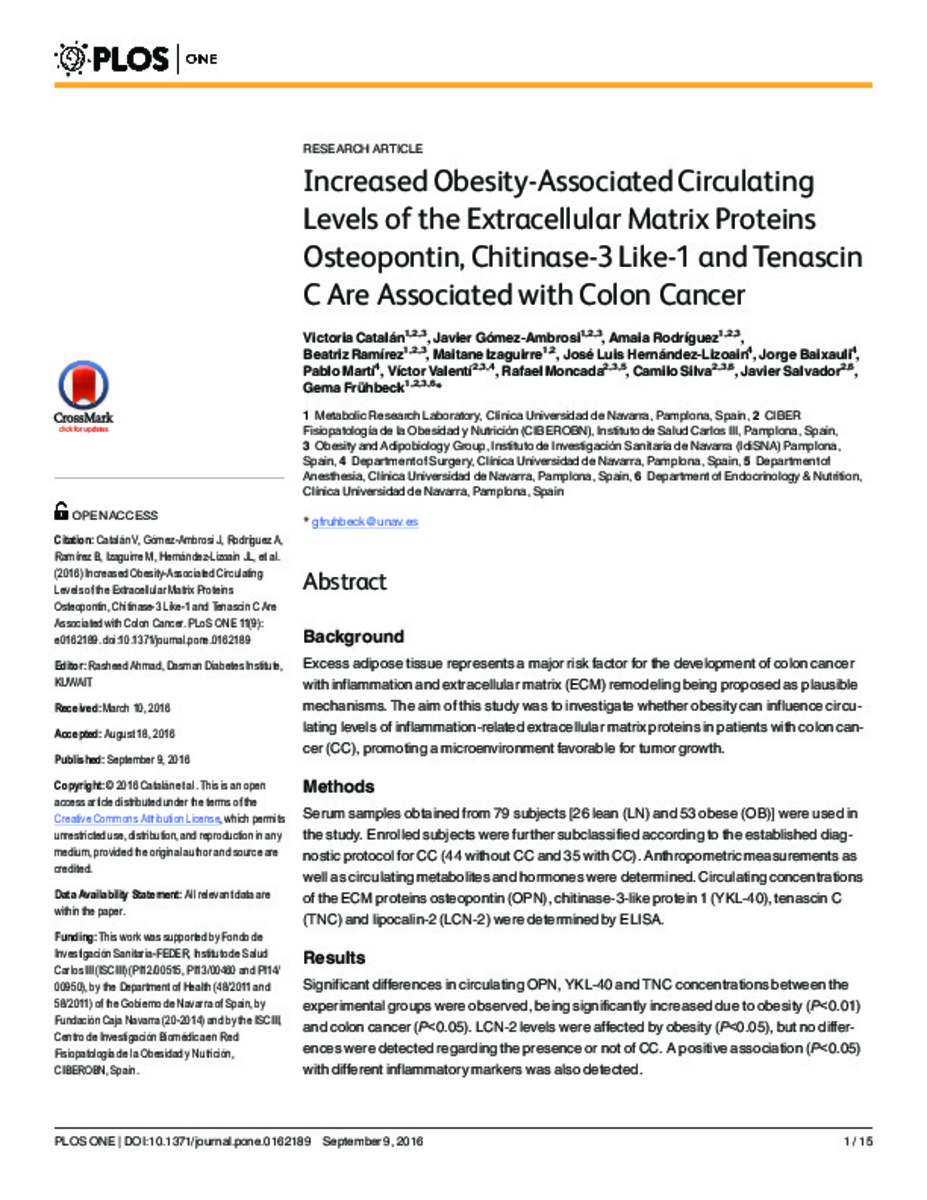Increased obesity-associated circulating levels of the extracellular matrix proteins Osteopontin, Chitinase-3 Like-1 and Tenascin C are associated with colon cancer
Keywords:
Obesity
Colon Cancer
Excess adipose tissue
Materias Investigacion::Ciencias de la Salud::Endocrinología
Materias Investigacion::Ciencias de la Salud::Nutrición y dietética
Publisher:
Public Library of Science
Editorial note:
This is an open access article distributed under the terms of the Creative Commons Attribution License, which permits unrestricted use, distribution, and reproduction in any medium, provided the original author and source are credited.
Citation:
Catalan V, Gomez-Ambrosi J, Rodriguez A, Ramirez B, Izaguirre M, Hernandez-Lizoain JL, et al. Increased Obesity-AssociatedCirculating Levels of the Extracellular Matrix Proteins Osteopontin, Chitinase-3 Like-1 and Tenascin C Are Associated with Colon Cancer. PLoS ONE 2016;11(9):e0162189
Statistics and impact
0 citas en

0 citas en

Items in Dadun are protected by copyright, with all rights reserved, unless otherwise indicated.








